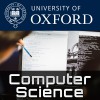Strachey Lecture: Quantum Supremacy
In the near future, it will likely become possible to perform special-purpose quantum computations that, while not immediately useful for anything, are plausibly hard to simulate using a classical computer. These "quantum supremacy experiments" would be a scientific milestone---decisively answering quantum computing skeptics, while casting doubt on one of the foundational tenets of computer science, the Extended Church-Turing Thesis. At the same time, these experiments also raise fascinating questions for computational complexity theorists: for example, on what grounds should we believe that a given quantum system really is hard to simulate classically?
Does classical simulation become easier as a quantum system becomes noisier? and how do we verify the results of such an experiment? In this lecture, I'll discuss recent results and open problems about these questions, using three proposed "quantum supremacy experiments" as examples: BosonSampling, IQP / commuting Hamiltonians, and random quantum circuits.
Based partly on joint work with Alex Arkhipov and with Lijie Chen.
The Strachey Lectures are generously supported by OxFORD Asset Management.




